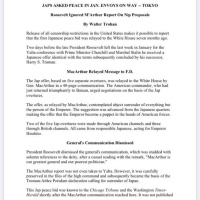ちゃんと仕事しているアピール
これでも悪口しか言わないメディアは
全体主義党派の洗脳機関ですよ

Drug prices declined in 2018, the first time in nearly half a century. During the first 19 months of my Administration, Americans saved $26 Billion on prescription drugs. Our policies to get cheaper generic drugs to market are working!
ロシア疑惑が陰謀論なみの憶測の塊であるという証拠記事 ワシントン・ポスト の論調が正しいのなら、トランプ大統領は北朝鮮金正恩の手先でもあるという記事も書ける。
Analysis: Why the FBI might’ve thought Trump could be working for Russia
President Trump and Russian President Vladimir Putin shake hands ahead a meeting on July 18 in Helsinki. (BRENDAN SMIALOWSKI/AFP/Getty Images) (Brendan Smialowski/AFP/Getty Images)
The theory that President Trump is or has been a Russian asset is a popular one among his detractors. But for the first time, we’re learning that it’s something the FBI suspected strongly enough to dig into.
The Washington Post has confirmed that the FBI launched a counterintelligence inquiry into whether Trump was working for Russia shortly after Trump fired FBI Director James B. Comey in May 2017. The news was first reported by the New York Times.
Practically speaking, this may not mean a whole lot. Special counsel Robert S. Mueller III was appointed mere days later, meaning any evidence the FBI collected was likely limited. It was Mueller’s decision to continue the line of inquiry, and we don’t know whether he has. But practical concerns aside, it’s a shocking story: The nation’s leading law enforcement agency was looking into whether a sitting U.S. president was working for a hostile foreign nation. The decision was something the FBI reportedly struggled with for months, and it still has its detractors.
But what might have led to such an extraordinary step by the FBI? And what’s the state of the evidence?
Comey’s firing was obviously the tipping point. Investigators reportedly shed their previous reservations about the inquiry after Trump’s televised admission to NBC News’s Lester Holt that the Russia investigation was on his mind when he did it. Another red flag was Trump’s attempts to include a reference to the Russia investigation in Deputy Attorney General Rod J. Rosenstein’s letter justifying the firing.
We already know that these few days comprised a central event in Mueller’s investigation into whether Trump obstructed justice, but the idea that it also warranted a counterintelligence inquiry is notable. It’s one thing to deliberately hamper the investigation; it’s another to suspect Trump might have done so on behalf of Russia. Were this to ever lead to any concrete conclusions, that Holt interview will apparently have been an extraordinary misstep by Trump, who has often seemed to blurt out unhelpful statements about his true motivations.
The other obvious one here is the British former intelligence officer Christopher Steele’s dossier. The dossier included a high-profile allegation that Russia had kompromat — or compromising material — on Trump thanks to supposedly salacious evidence it had about Trump’s pursuits in a Moscow hotel room. This allegation has never been proved and Putin has denied it (as if he would confirm it), but Comey has suggested it’s not out off the question, and some lawmakers have even gone so far as to raise the idea that Trump is compromised.
“Millions of Americans will continue to wonder if the only possible explanation for this dangerous and inexplicable behavior is the possibility — the very real possibility — that President Putin holds damaging information over President Trump,” Senate Minority Leader Charles E. Schumer (D-N.Y.) said on the Senate floor last year.
Added Sen. Jeff Merkley (D-Ore.): “I think it’s likely.” A then-retiring GOP congressman, Charlie Dent (Pa.), agreed.
The Times outlined a number of other events that played into the obstruction case and could have fed further suspicions about Trump’s motivations, including his pro-Russia and pro-Putin campaign-trail rhetoric and his public request that Russia try to obtain Hillary Clinton’s emails. The GOP also altered its platform on Ukraine in a more pro-Russia direction.
What hasn’t been outlined, though, are the proposed back channels between the Trump team and Russia.
A month before Comey was fired, The Washington Post reported that Trump ally and Blackwater founder Erik Prince had proposed such a secret channel of communication between Trump and Moscow at a January 2017 meeting in the Seychelles with a Putin representative. The FBI was also presumably aware at the time (because it monitors the calls of Russian officials on U.S. soil) that then-Russian Ambassador Sergey Kislyak had told his superiors in Moscow that Trump’s son-in-law, Jared Kushner, had proposed a back channel during the transition period. (The Post reported this shortly after Comey’s firing.)
If Trump was working for Russia, it would be logical to assume he’d need some way of actually learning what Russia desired — which would be difficult through regular channels, given they’d be monitored. We don’t know where these back channels stand in the Russia investigation, but if Mueller were probing a potential secret Trump-Russia alliance, you’d think they’d be of interest.
For similar reasons, Trump’s meeting with Putin in Helsinki last year has also raised eyebrows. He met privately with Putin for two hours, with nobody but interpreters present, and apparently nobody in the American government really knows what they discussed. Director of National Intelligence Daniel Coats even seemed to express concern about the lack of information. “I’m not in a position to either understand fully or talk about what happened in Helsinki,” Coats said afterward. Why Trump would need to keep things so under wraps has always been curious.
There are, of course, simpler explanations to all of this than the idea that Trump was working for Russia. Perhaps he truly admires Putin’s leadership style — which very much fits with his expressed admiration and work with other authoritarian leaders. It has been clear that Trump wanted to do business in Russia, so he seemed to be positively predisposed toward the country. And his efforts to hamper the Russia investigation needn’t be about any secret pro-Russia agenda; it’s also quite logical to think Trump simply views the whole thing as casting a pall over his election and raising concerns about the legitimacy of his presidency. Even if Trump unjustly attempted to obstruct the investigation, that doesn’t mean he was necessarily doing it for Russia. In fact, Russia would seem to have less to gain from such obstruction than Trump would.
But there was apparently enough subterfuge and concern here to cause the FBI to take an extraordinary step — even if it might have wound up being a brief one. The idea that Trump’s interests might not indeed be “America First” has largely bubbled beneath the surface of American politics for the past two-plus years. It’s still highly speculative, based upon the public evidence, but as always the question is what Mueller knows that we don’t.
CIAの広報誌NEWSWEEKはこのように言っている
The FBI launched an investigation to probe if President Donald Trump was working for Russia following his sacking of FBI Director James Comey shortly after taking office, the New York Times reported.
Former law enforcement officials and others familiar with the investigation told the Times that Trump’s firing of Comey in May 2017, only months into his presidency, sparked such concern amongst counterintelligence officials that they investigated if he was a national security threat secretly working on behalf of Russia.
Two occasions on which Trump stated that he sacked Comey in part because of the FBI’s probe into allegations of Russian interference in the 2016 election prompted the counterintelligence investigation, according to the Times report.
In a letter Trump planned to send Comey after his sacking he mentioned the Russia investigation, and in an interview with NBC News days after Comey’s firing he said he had sacked Comey because of “this Russia thing.”
The FBI had grown suspicious of Trump’s Russia ties during the 2016 presidential election, but reportedly held off launching an investigation into the candidate personally, the Times reported.
The FBI has declined to comment.
White House Press Secretary Sarah Huckabee Sanders in a statement to news outlets described the report as "absurd.”
"James Comey was fired because he's a disgraced partisan hack, and his Deputy Andrew McCabe, who was in charge at the time, is a known liar fired by the FBI. Unlike President Obama, who let Russia and other foreign adversaries push America around, President Trump has actually been tough on Russia," she said.
Robert Mueller reportedly took over the FBI’s counterintelligence probe into Trump when he was appointed special counsel in May 2017, but it is not known if it still forms a part of his ongoing investigation into Russian interference in the 2016 election.
This story was updated on Saturday January 12 to state that the FBI declined to comment on the New York Times report.
。



























